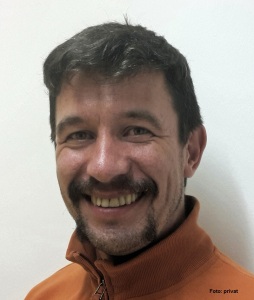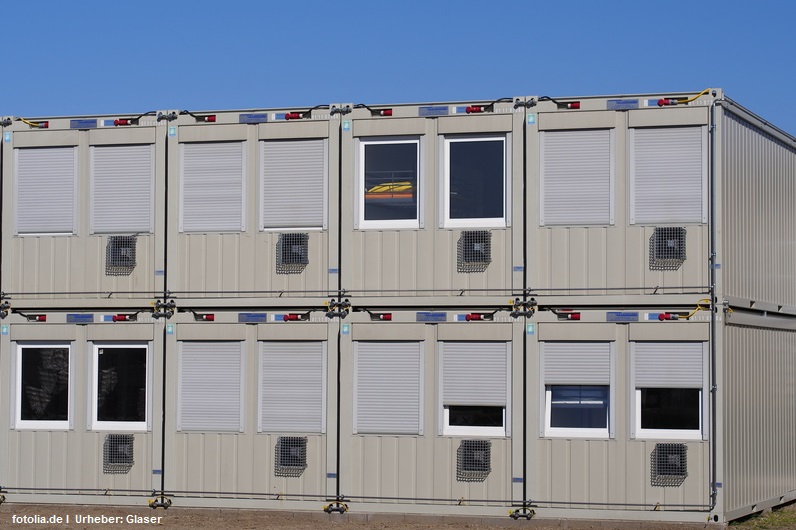As if the risky, often weeks-long flight was not stressful enough, gay refugees in particular are repeatedly subjected to homophobic hostility or even violent attacks by their flatmates in the collective accommodation centres. Counselling and help with this issue and many other problems is provided by the Berlin Gay Counselling Service, among others. We spoke to Stephan Jäkel, Head of the HIV and Prevention Department, about the specific services on offer.
Stephan, when did you realise that fhe time has come for gay counselling to deal even more intensively than before with the topic of LGBTI fls a question of dealing with refugees?
This actually started around two years ago. Since then, more and more refugees have come to us, but the main problem is a different one: There is hardly any affordable housing left in Berlin. While the housing issue used to be relatively easy to solve, we are now faced with the situation that it is very difficult to find accommodation for the refugees who come to us. This has made the psychological situation of LGBTI refugees extremely difficult.
In what way?
Simply because this means they are exposed to hostility in the accommodation centres for much longer. You have to imagine that many gay people come to Germany with the hope of finally being able to live a safe and open homosexual life here. A hope that is often nipped in the bud in the collective accommodation centres.

Can you describe a specific case of what those affected experience in the collective accommodation centres?
A few months ago, I met a Syrian man who had come to Berlin and applied for asylum. In the collective accommodation, he then told his room neighbour that he was gay, whereupon he was insulted and spat at by him for weeks. Although he tried to find other accommodation early on and even found one, it took two months for the Berlin State Office for Health and Social Affairs to say: Yes, you can move. By then, of course, the free room had long since been taken. In the end, it took almost a year before he was able to free himself from this terrible situation. Unfortunately, there are even worse stories. I know a gay refugee who was throttled unconscious by other refugees outside his accommodation after he officially came out. He told me that he saw so much hatred in the eyes of the others that he thought that was it. Fortunately, he survived the attack.
What do you want to do to improve this situation?
We have made it very clear that something needs to be done about the accommodation quickly. Because that is the main problem that gay refugees come to us with and, incidentally, has also been confirmed to us by the operators of refugee centres themselves. We have therefore been planning larger accommodation since the end of last year.
How far are the plans for thisfor?
In the beginning, we thought that we would simply look for a large house and off we went. However, the regulations are more complex than you might think. The biggest problem, however, is finding a property in the first place. We place adverts, network with other initiatives, write to estate agents, but: it's difficult. Despite intensive efforts since April this year, we haven't found anything yet. We actually thought it would go faster.
What else does the gay counselling service in Berlin do to help flo help refugees?
In July, we set up a contact and drop-in centre for LGBTI refugees, which is open for four hours every Tuesday and Friday afternoon and is staffed by two gay colleagues. One of them is himself a Syrian who has been granted political asylum in Germany.
What can this contact point do?
On the one hand, refugees can meet and exchange ideas, and on the other, we also offer translation assistance, for example when visiting authorities or doctors. We also find lawyers and psychologists, provide social counselling and organise private accommodation. Fortunately, we are always contacted by gay flatshares or others who simply have a room to offer.
How is the offer being received?
We haven't really advertised it yet and yet more and more people are coming. Since July 2015, we have reached around 40 gay and trans* refugees, mainly from Syria - and the trend is rising. We assume that we will reach many more people once our programme is better known.
In addition to this offer, we now need to make our existing services more accessible to refugees. We need prevention campaigns on HIV/STI and drugs, at least in Arabic and Russian. Too many gay refugees become infected with HIV in Berlin in a very short time and have little knowledge about it because they are very inexperienced with the relevant prevention programmes. Social counselling and psychological counselling/trauma therapy must be urgently offered to LGBTI refugees. We have 30 years of experience with HIV/AIDS and therefore know everything about what structural prevention should look like. We therefore demand that the Berlin Senate grant us the additional staff positions we have applied for. Then we can respond appropriately to the challenges.










